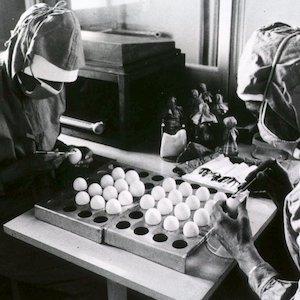Millennials don't have it easy, contrary to popular belief.
Globalization, automation, and other permanent structural shifts in the workforce have conspired against this generation. According to the advocacy group Young Invincibles, and reported in USA Today, "millennials earn 20 percent less than boomers did at the same stage of life, despite being better educated."
Quartz puts it even more starkly:
The American dream hinges on the idea that future generations will do better than the ones that preceded them. But a new study... is bad news for a whole generation: Only half of American 30-year-olds today earn more money than their parents did at the same age. That’s a steep drop from the early-1970s, when 30-year-olds were virtually guaranteed to outpace their parents’ generation in earning power.
Often heavily indebted from the soaring cost of higher education, Millennials are delaying marriage, families, and home ownership, as well. While financial conditions force many Millennials to live at home with their parents, older Americans mock them as entitled "snowflakes."
Now, there's yet another trouble to add to the Millennials' list of woes: Shingles.
Decline of Chickenpox a Problem for Millennials?
The year I turned 30 years old, something very bizarre happened: I broke out in shingles. That's a disease we normally associate with old people. What was going on?
Shingles is caused by the same virus that causes chickenpox. Chickenpox is a type of herpesvirus. And just like herpes, chickenpox is forever. After the itchy bumps disappear, the virus lives inside nerve cells for the rest of your life. Every once in a while, the virus is reactivated, triggering the painful rash we call shingles.
Why does the virus get reactivated? That's not entirely clear. Age, stress, and becoming immunocompromised play a role. But there's another possible explanation: Chickenpox vaccines.
According to recent data from the CDC, the percentage of children who have ever had chickenpox has fallen dramatically since a vaccine was licensed for use in the U.S. in 1995.
This is a resounding public health victory! Sitting in a gooey oatmeal bath no longer has to be a rite of passage during childhood. If chickenpox is one day eradicated, nobody will ever get chickenpox or shingles again.
Unfortunately, this victory may have come with a temporary unintended consequence. Because fewer kids have chickenpox, there is less virus circulating among the public. It is thought that exposure to the virus helps keep shingles in check. (Perhaps exposure to the virus triggers the production of antibodies which prevent outbreaks of shingles.) One study from 2015 predicted that 31- to 40-year-olds would be hit hardest by the uptick in shingles cases.
Other research published in the Annals of Internal Medicine disagrees. It found that there was an increase in shingles cases, but it did not believe that the chickenpox vaccine was to blame. Notably, however, the study only examined people aged 65 and over.
Regardless of the exact explanation, shingles cases are going up, and Millennials may be disproportionately affected by the increase. Hopefully, it won't be rechristened "Snowflake disease."
Source: "QuickStats: Percentage of Children Aged 4–17 Years Who Had Ever Had Varicella (Chickenpox), by Age Group — National Health Interview Survey, 2007–2016." MMWR 66 (48): 1337. Published: 8-Dec-2017. DOI: 10.15585/mmwr.mm6648a7




